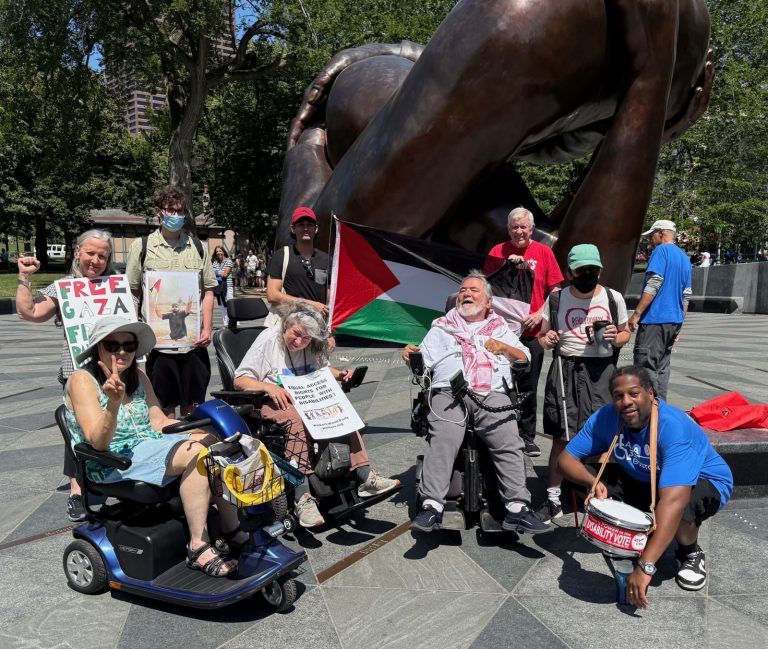A Toronto man is wheeling his way along the general route of the proposed Enbridge Northern Gateway Pipeline project, and halted Prince George traffic as he did so.
David Clow, a C6 quadriplegic, deliberately held up the travelling lanes on Victoria Street, Tuesday morning. At each set of traffic lights he tarried long after the light turned green in order to stack up vehicles behind him by the time he had gone a few blocks through the downtown. It was an act of civil disobedience aimed at causing unexpected awareness about the message on the back of his wheelchair: opposition to the pipeline.
Imagine how inconvenienced you'd feel, he said, if the pipeline ever leaked, or worse.
"Northern Gateway is such a risk," he said. "That risk is being put on the environment of this area, and the people of this area, and whatever jobs they're talking about just doesn't add up to accepting that risk."
Within days of passing through previous towns in Alberta, existing pipelines did rupture, he said, sending him even more momentum to carry on his difficult journey.
He attended a Tar Sands Healing Walk in June in the Fort McMurray area and was embraced so movingly by the resident aboriginal people for wheeling those 14 kilometres that he was seized by the idea of the Enbridge route - a distance 10 times that distance. He is now approximately two-thirds of the way to Kitimat where the proposed pipeline would end.









